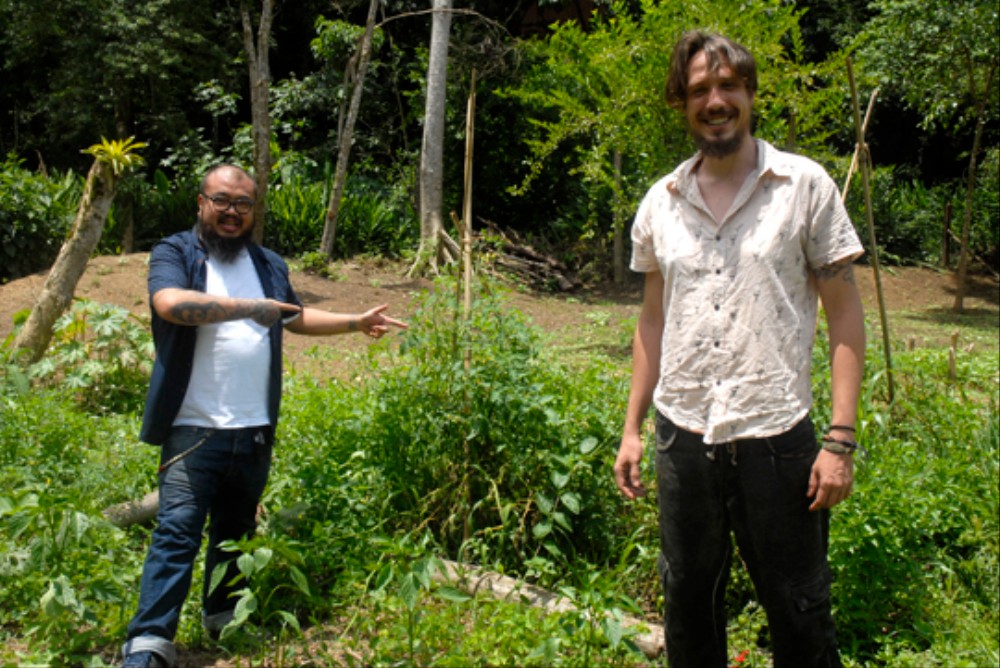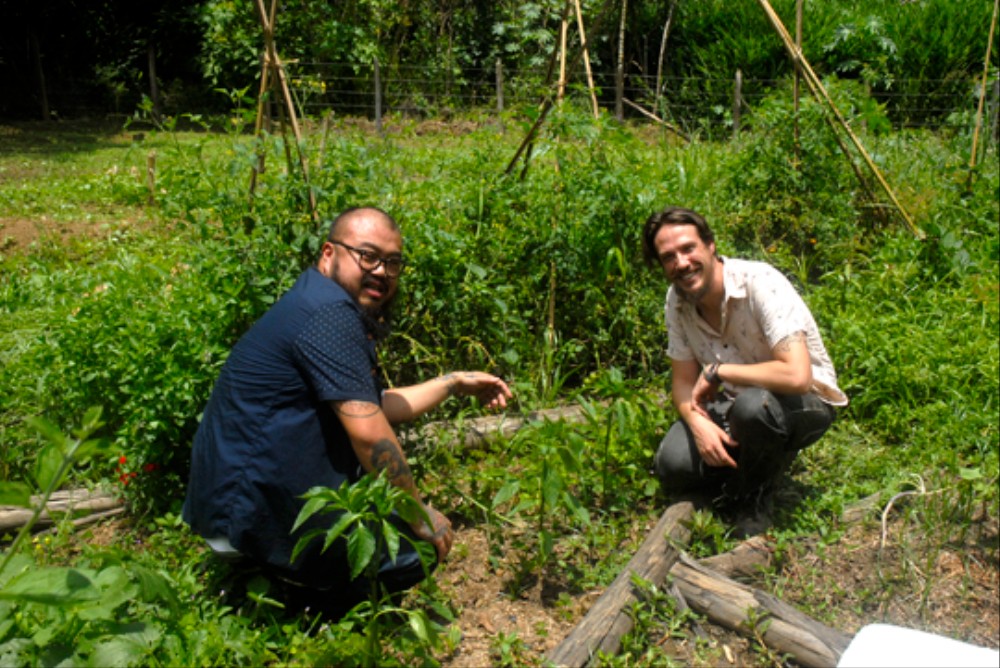Food subscription services have been spreading like a plague, offering everything from fair-trade coffee and meal kits to booze and candy. But in Brazil, two farmers are taking these subscription services to a whole new level by allowing people to "own" a piece of land and eat all the organic produce grown on it—all for just a small monthly fee.Mandala da Montanha is a little company based in the city of Santo Antônio do Pinhal, in the Serra da Mantiqueira (one of the most biodiverse mountain ranges in Brazil), a two-hour drive from São Paulo. It was founded in late 2015 by Martin Schneesche and Alexandre Yokoyama as a farm for growing and selling organic food. In November, they came up with the subscription idea in order to scale up their production. "Being a little farmer sucks sometimes, because most people think that a lettuce head is always the same, which it is not. And you are crushed by the distribution channels: They are only focused on price and aesthetic standardisation. Distributors only want pretty vegetables, and always with the lowest cost possible. So we decided to sell directly to our clients, who value our products," Schneesche explains.
Advertisement

Customers pay around $80 US per month for a subscription program, which allows them to manage ten square metres of a 6,4000-square-metre piece of land. Under the advice of Mandala's founders, who dedicated two years studying farming methods and permaculture, subscribers decide which seeds they want planted, including a variety of lettuces, beets, onions, cauliflower, spinach, and even some popular indigenous ingredients, such as scarlet aubergine and okra. Mandala's team takes care of the crops for the client, and each week Mandala delivers all of the food grown in those ten square metres to the customer's door (in the São Paulo region only).How is this different from community-supported agriculture (CSA) or other subscription services? The main difference is that the consumers can be part of the farming process, giving their opinions about which ingredients they want to grow. Even though there are many subscription services that deliver organic food to their clients' doors, and food-based e-commerce companies are increasingly targeting consumers who seek convenience, Mandala's founders believed there was a link missing in the chain. Schneesche is a former strategic planner and his partner, Yokoyama, managed restaurants for many years. It took them a year to create a business plan to make Mandala happen."We studied the philosophy of Ludwig von Bertalanffy's general systems theory (GST), passing food systems through hacker culture to come up with our concept," Schneesche says. "We thought: What if we hacked the way food is distributed? And what if we plant according to what people want to eat, offering them broader cultivation options in which they could be co-producers?"
Advertisement
According to Yokoyama, the benefit of subscribing to Mandala is that clients can know exactly where their food is coming from and how it was produced, and they can also help to turn empty land into a productive area. "We wanted to be 'co-producers,, more than just 'producers,' by allowing people who can't produce their own food—whether they live in the city, or because they don't have enough space, or because they don't have time, or simply because they don't know how to do it—to actively participate in the production of their own food," he adds. Mandala receives visitors in their fields, and also offer classes in regenerative agriculture, tool handling, land management, cultural dealings, and more, giving people the opportunity to live in practice the experience of growing their own food. "We think this is a beautiful way to give back to our subscribers, who will not pay anything else for these experiences," Yokoyama says.Once a month, each subscriber receives a list of the seedlings available; at the moment, there are more than 50 varieties, and Mandala is establishing a "nursery" of seedlings with more than 100 rare and exotic species. In addition to all the food produced in those ten square metres, the client gets a full report of what's been harvested, how much space was used and, more importantly, what has been planted and how long it will take to grow. "We also have already implemented a collective vegetable garden. If there's something missing in someone's garden, we complement from ours, thus ensuring that person always has the food she ordered," Yokoyama points out.
Advertisement
The model also allows some food exchange between the parcels depending on which food is being cultivated. For example, a cucumber plant at the peak of production can produce three to four kilos of cucumbers per week. If someone's parcel produces four kilos of cucumbers, the owner can take only one kilo and exchange the remaining harvest with someone who overproduced corn, for instance. Mandala's team—comprised by Schneesche and Yokoyama and some freelancer farmers, depending on the amount of work—can mediate these exchanges, of course. "But if someone wants to keep all five kilos, he can also distribute some units to friends and relatives or even give it to charity. This way we can decentralise the food distribution model, empowering people," Schneesche says.In addition to serving its clients, Mandala's team also takes care of day-to-day chores such as cleaning the fields, composting, and treating the plants. They use only local labour, and their business model allocates a percentage of the subscription revenue to pay those labourers—meaning that the more subscribers Mandala gains, the more those labourers will earn. That stands in stark contrast to the status quo, where farmers are often underpaid and exposed to toxic substances commonly used in traditional agriculture.

In the next year, Mandala expects to lease a new 5,000-square-metre area of land to scale up their operation. They hope to supply around 200 customers in one year, though for the initial phase, they expected around 50 to 80 subscribers. In less than a month since they launched, however, they now have more than 30 subscribers. The partners are also negotiating directly with restaurants and as well investors to increase profits. "We want to offer people the opportunity to dominate the cultivating process of their own food, even if on a small scale, by giving the first bite," Schneesche concludes.